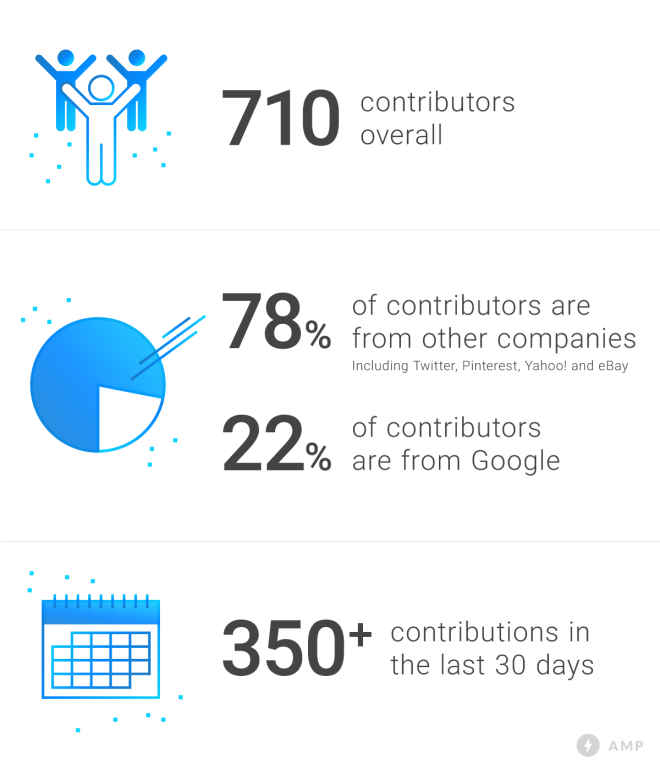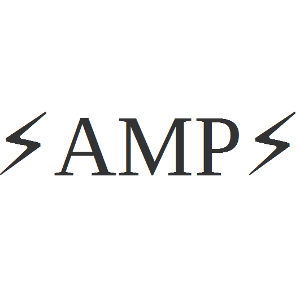| Google Gives AMP Open Governance - Still Not Good Enough? |
| Written by Mike James | |||
| Wednesday, 19 September 2018 | |||
|
Google's AMP is controversial. Is it a Trojan horse that allows Google to take over the web, or is it a tool for delivering fast web pages that benefits everyone? Now, with new Open Governance for the project, surely it must be an open source force for good?
Once we trusted Google, or at least gave the company and its leaders the benefit of the doubt. Today we are altogether more suspicious of the activities and promises of a billion dollar company which has been caught, if not doing outright evil, doing things that aren't entirely wholesome. AMP Project Stats: Accelerated Mobile Pages (AMP) is a fairly simple idea. Restrict the range of things that can go into a web page and make the resources that those things need available from content delivery services that are geographically close to the user. By limiting the range of things that an AMP page uses, the chances are that the local cache serves most of the non-unique content and the content delivery service is fast when there is a cache miss. So far so good - AMP looks harmless but... Google provides the servers needed for the content delivery service and this is extended to caching the entire AMP page. What this means is that once you publish an AMP page Google will take care of serving it for you. You don't have to worry about lost revenue because AMP includes a set of standard banner ad components. Perhaps not enough, but at this point, and given Google's position as an ad provider, to put it in charge of ad delivery mechanisms is dangerous. It seems that Google is making the web faster and relieving your server of the burden of delivering the pages will allowing the website to still earn some revenue from the ads that arent' blocked. You can also offer a non-AMP and an AMP version of a page and the search engine, i.e. Google, will decide which to show in search results. Here we hit the first real problem. Google substitutes its own cache URL rather then the site's URL. What this means is that you don't get analytics - Google has, in a sense, hijacked your page. It also means users aren't as aware of individual sites - everything is Google-served. Add this to the move by Chrome to not display complete URLs, and you can see that Google can make sure you don't know where the page is coming from. All of this has caused a bit of a backlash and you will find articles and blog posts saying "Kill AMP before it kills your website, the web, free internet etc." The general suggestion is that AMP is Google's backdoor takeover of the web with everything served from a Google URL. Recently it has been announced that Google URLs for AMP pages will be a thing of the past and everyone can breath a sigh of relief and carry on using AMP. But, even if AMP is open source, it is still controlled by Google. In fact, it is controlled by one Googler, Malte Ubl. Things might have been talked over, but basically his word was the final decision. Now in a blog post he explains how this is not a good way to manage a project that has grown so large. He considers that an open governance model is needed and the proposal is:
There is even a suggestion that a foundation will be formed to remove Google even further from the project. So all is good and AMP is no problem? Not quite. The biggest concern is that, by proposing and promoting AMP, Google is effectively herding fish into a net. It doesn't matter who is actually doing the herding, a technical committee or an independent foundation, the fish are still heading into Google's net. The point is that Google provides the traffic and Google's search engine selects the URLs to direct traffic to. As long as Google is hosting the AMP cache then it has an inside view of what is going on on every website that uses AMP. Yes Cloudflare, or another content delivery service might well offer to cache some AMP content, but to go up against Google in this role is going to be a tough problem. It doesn't matter if Google hands AMP over to an entirely benevolent foundation, as long as Google is adjusting its search and hosting the cache, it has too much control. The web served by Google isn't an open and free web, it is a walled garden in waiting.
More InformationAn open governance model for the AMP Project Related ArticlesGoogle Tries For Email Takeover with AMP Google Speeds Up Mobile HTML With AMP Google Launches Fast Web Page Technology AMP Early To be informed about new articles on I Programmer, sign up for our weekly newsletter, subscribe to the RSS feed and follow us on Facebook or Linkedin.
Comments
or email your comment to: comments@i-programmer.info |
|||
| Last Updated ( Wednesday, 19 September 2018 ) |




